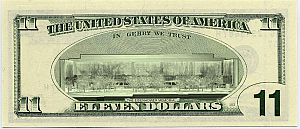One of the best things about having control of a publicly-traded company is that you can use funny money instead of real money to acquire assets and grow rapidly. The funny money I refer to is the public company’s own stock. If you do a deal to acquire XYZ Company for one million shares, you just create one million shares out of thin air and hand it over. Easy as pie.
However, there’s a problem with doing this too many times. If you keep issuing more stock to others eventually your own position gets diluted. You could even be diluted down to where you lose control of your company.
A solution to the dilution problem has been around for a long time but the Internet is just discovering it now. (In 2012 the Internet breathlessly proclaimed the discovery of revenue royalty certificates as financing instruments. Funnily enough, I had first heard about them around 1986 when they were already old news.)
All of this is a lead into an article on how Mark Zuckerberg deals with the dilution problem. He does it like many others have in the past with two types of common shares. Sometimes you have voting and non voting shares. Other times one class may have 5X or 10X more votes than the other. One type is used to retain control while the other serves as funny money for acquisition sprees.
When Mark Zuckerberg pays astronomical prices for unprofitable start-ups like Oculus ($2 billion) and WhatsApp ($19 billion), the Facebook CEO and founder is paying with a special currency, all his own: Facebook stock.
Many mergers and acquisitions are funded with company stock, of course, and in many cases the acquiree might prefer it: Stock gives them access to the potential upside of the merger in a way that cash can’t. But Zuckerberg’s deployment of company stock is special because of the corporate governance structure that Facebook and other tech companies have adopted.
These “dual class” structures allow founders to maintain control of their companies even if they don’t technically own a majority of its stock. As of February, Zuckerberg owned about 20% of the company, but almost all of that is “class B” stock, which gets ten votes for every one vote given to regular old class A shares; so he still controls the company personally, despite a minority economic interest. (source)
In reference to the sentence I boldfaced above, there is nothing special, new, or unique about what he’s doing. This has been around for decades but if you were still in diapers the first time Dubya got into the White House, I suppose that you can be excused for thinking that you had discovered something new.





Leave a Reply